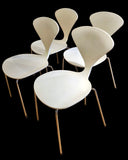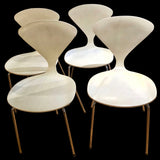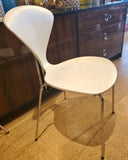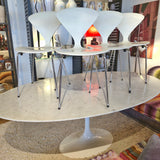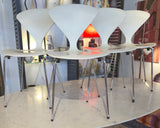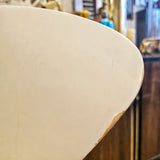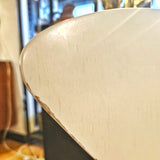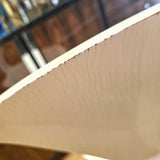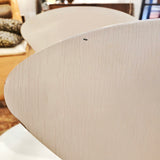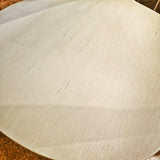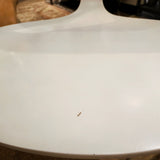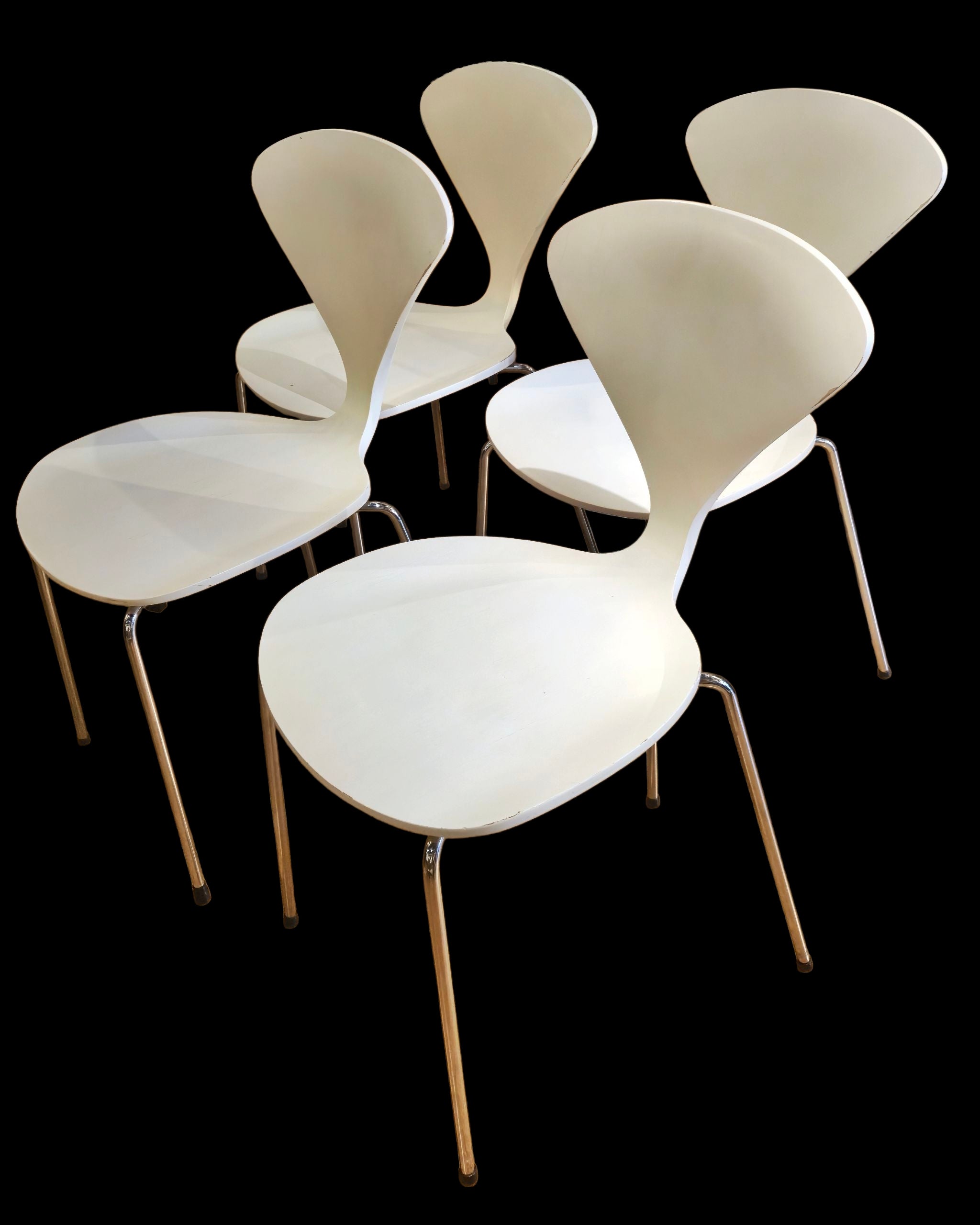
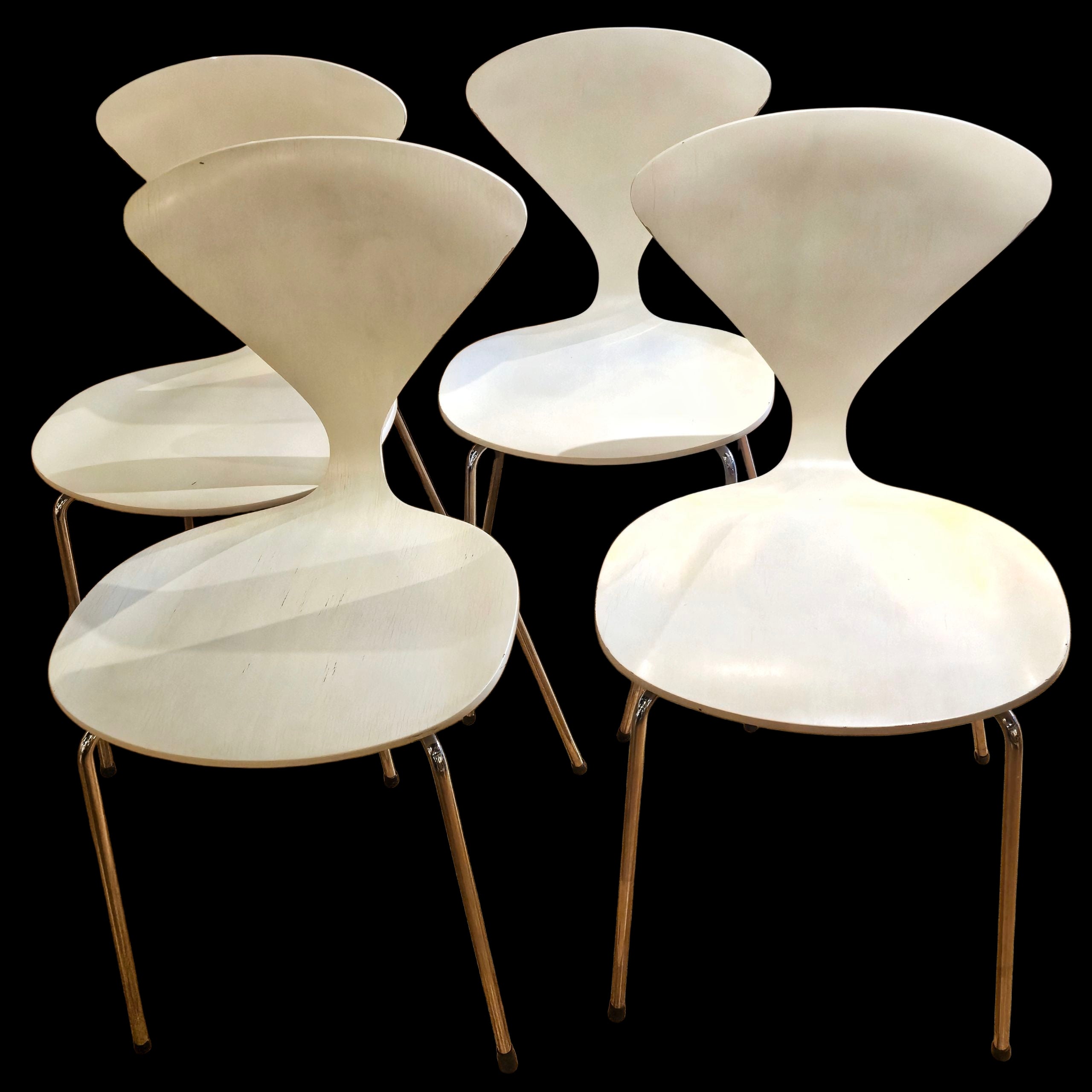
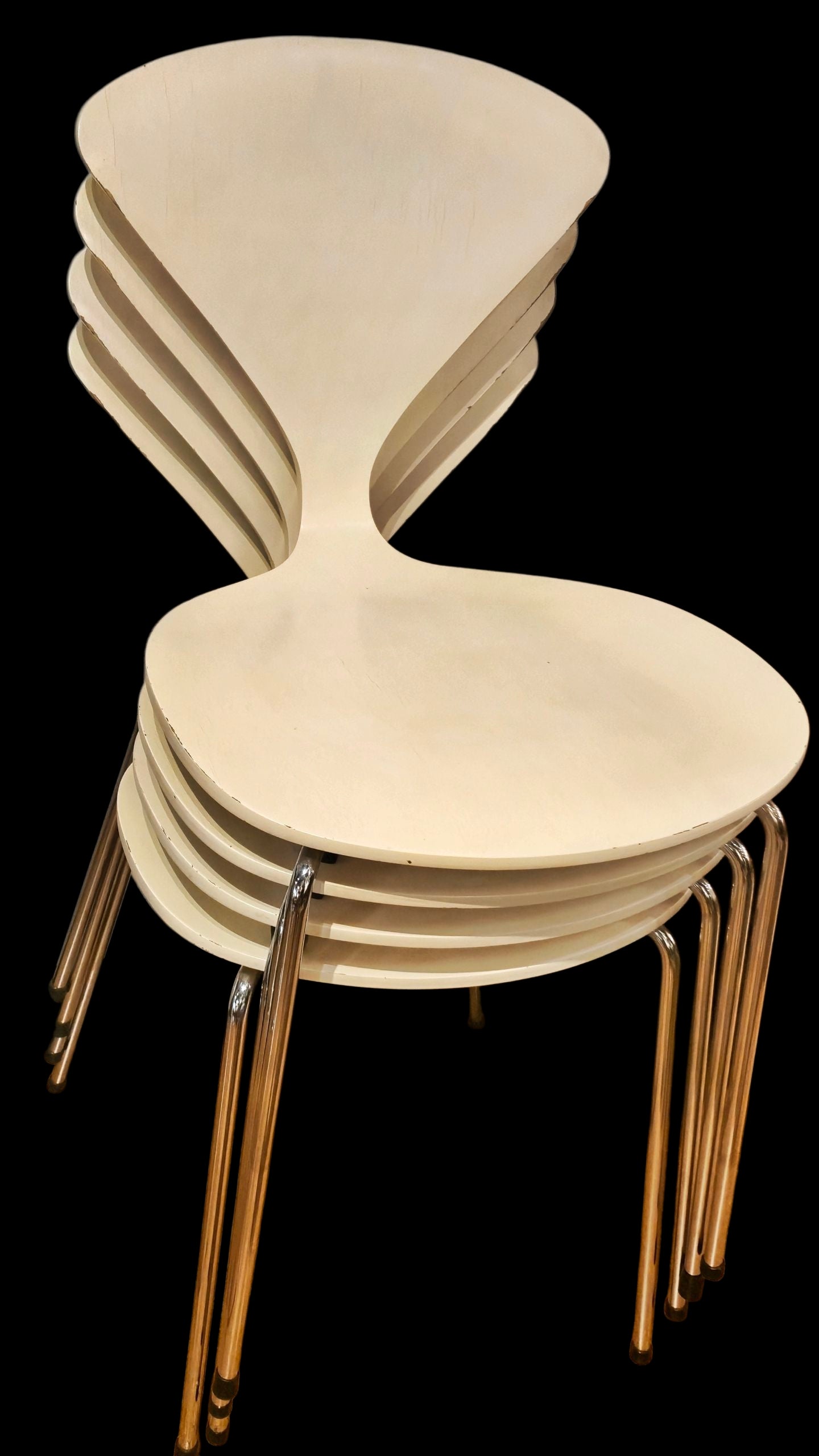
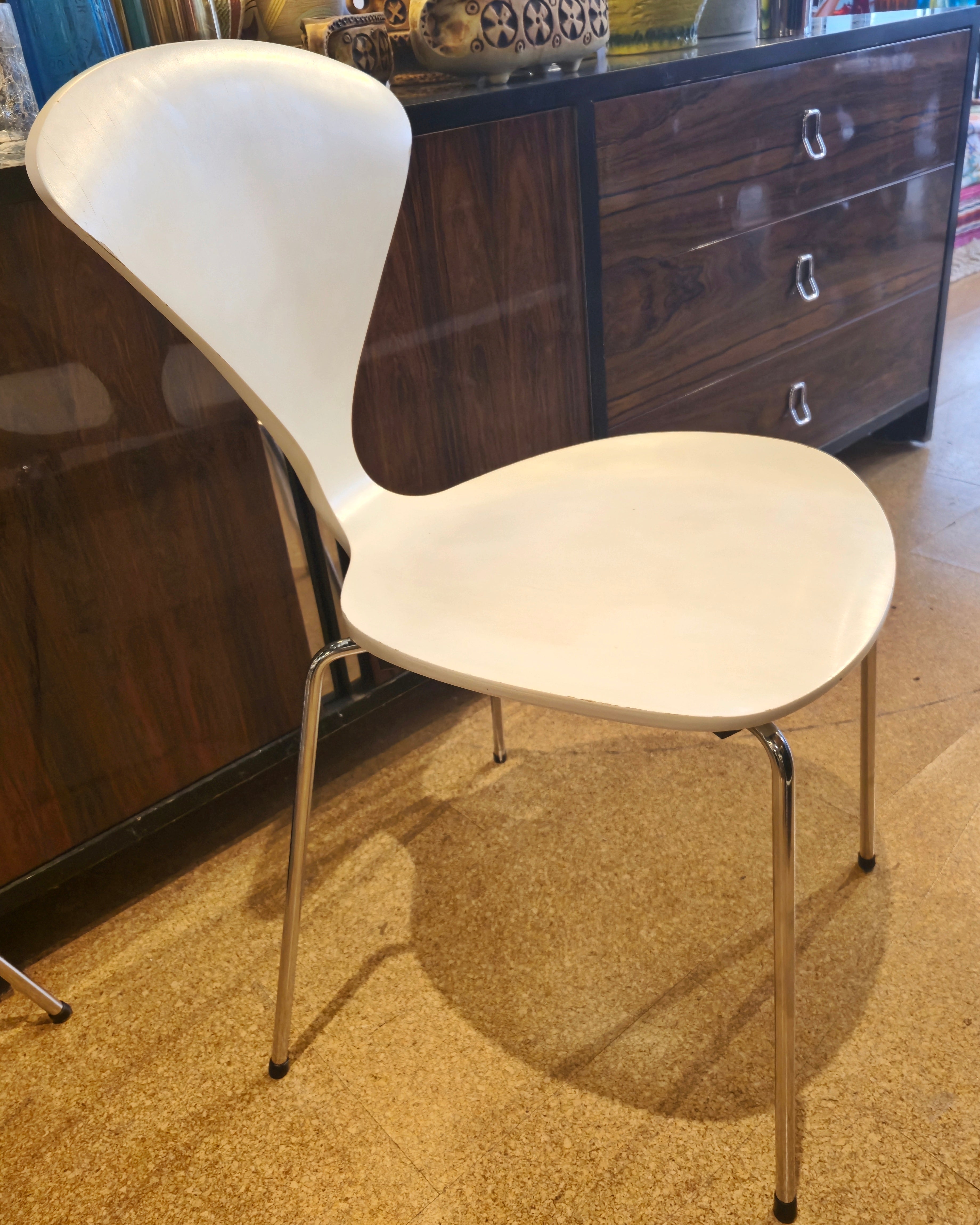
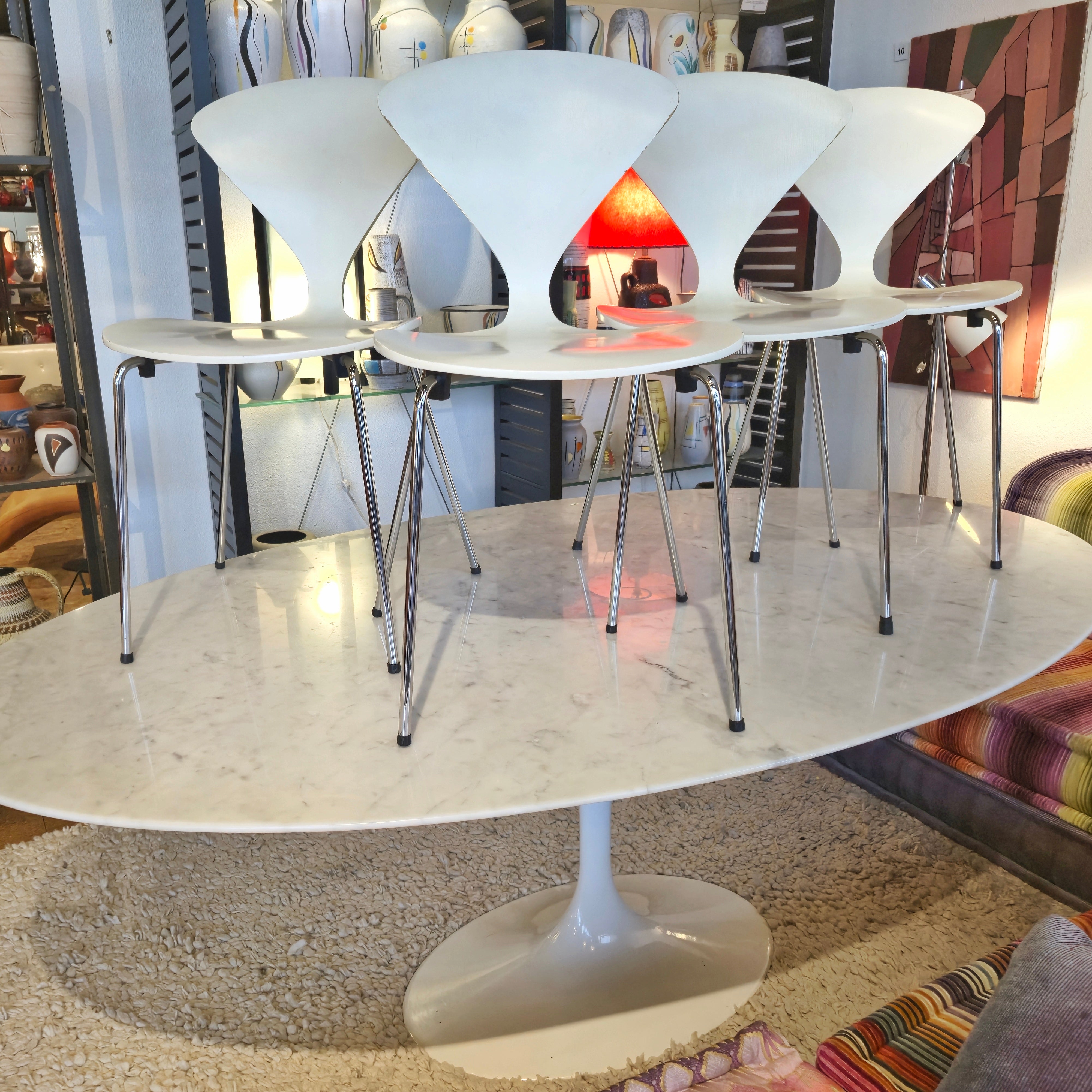
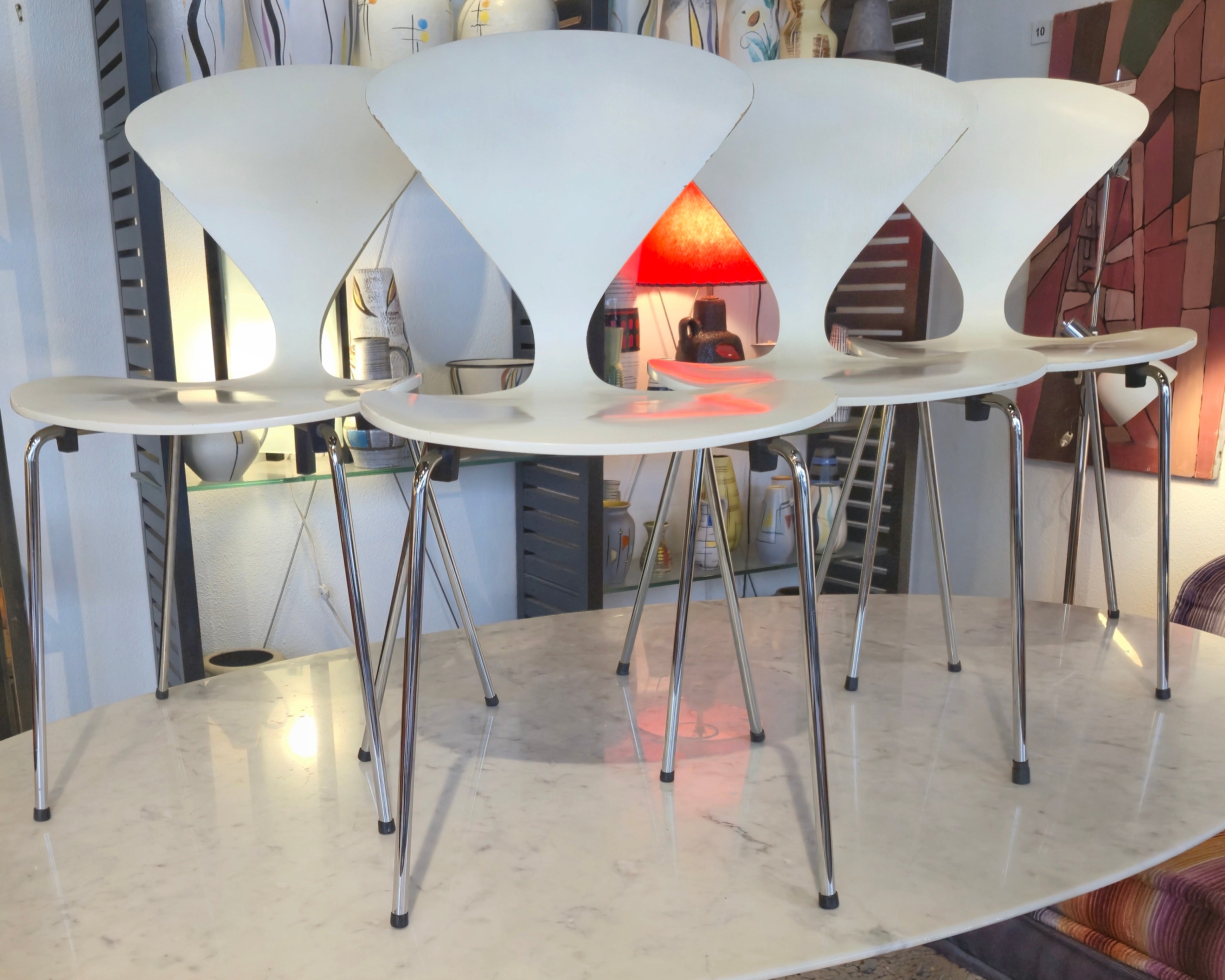
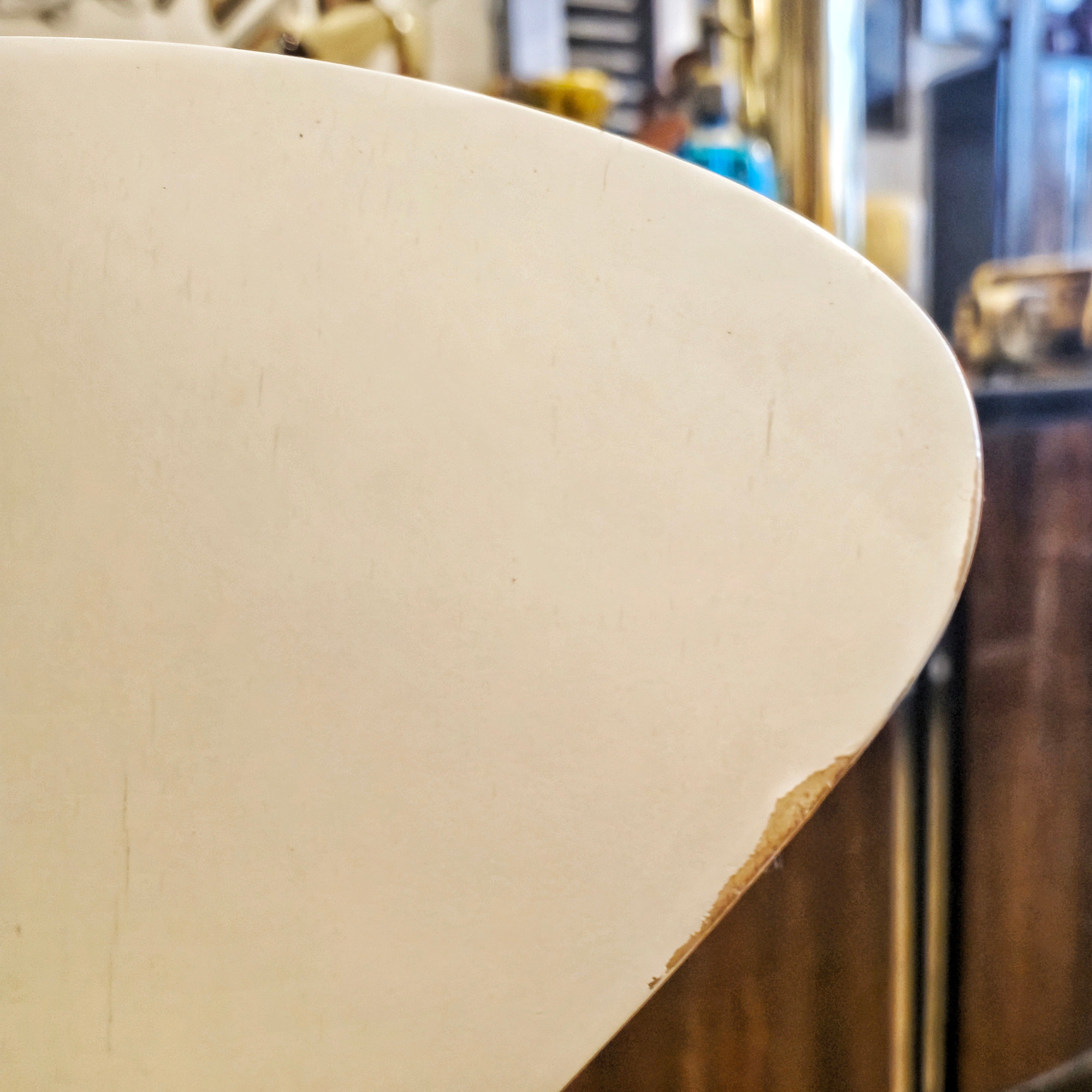
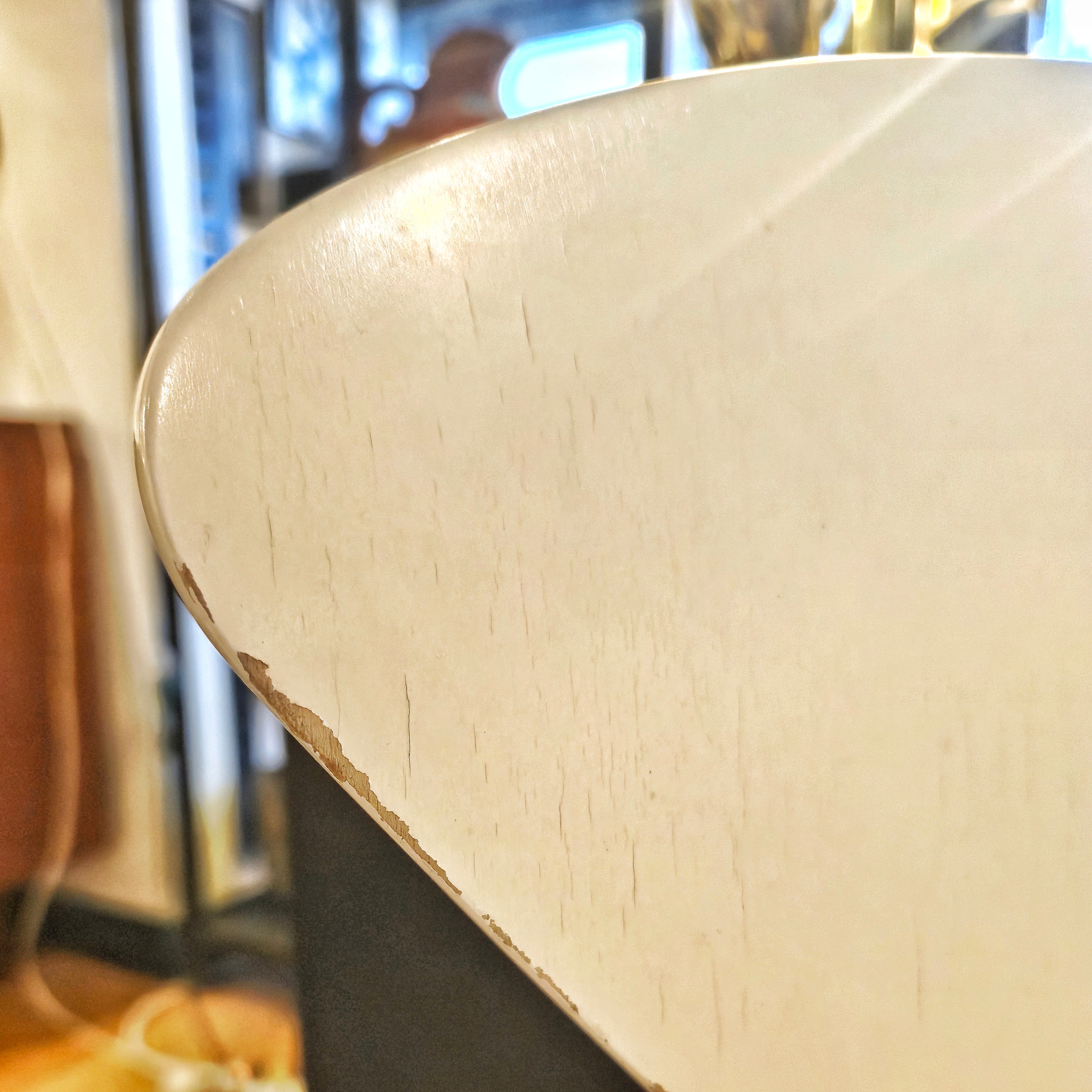
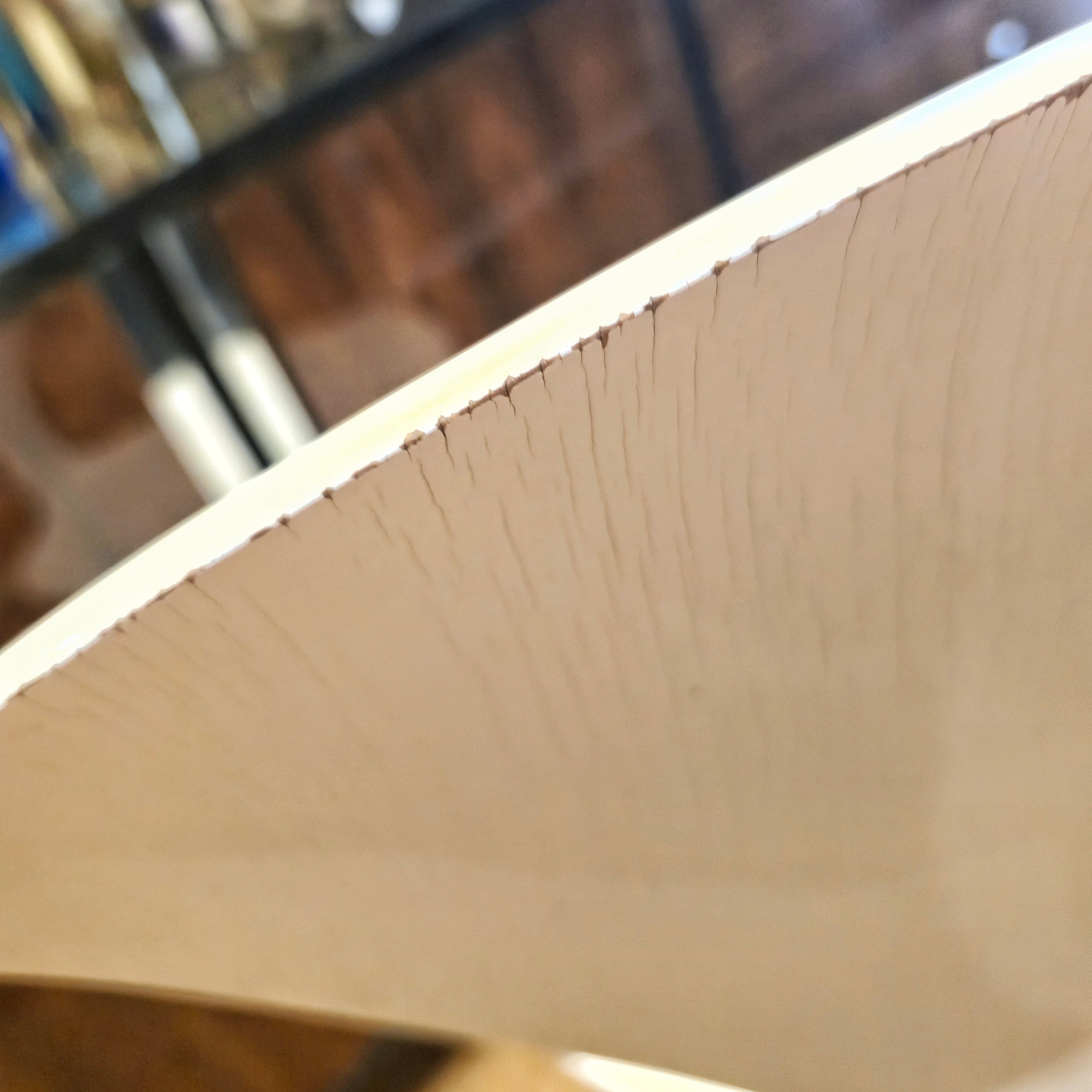
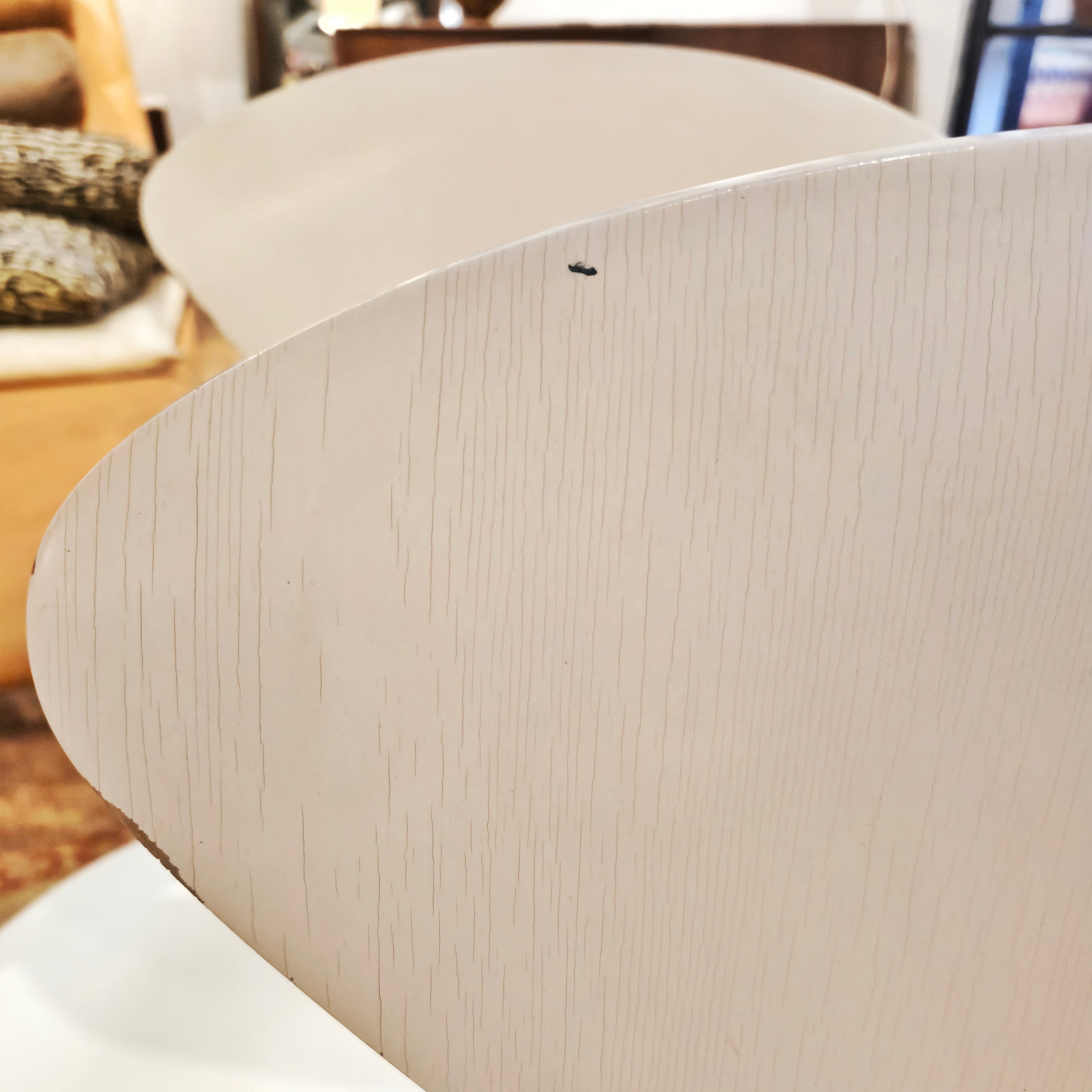
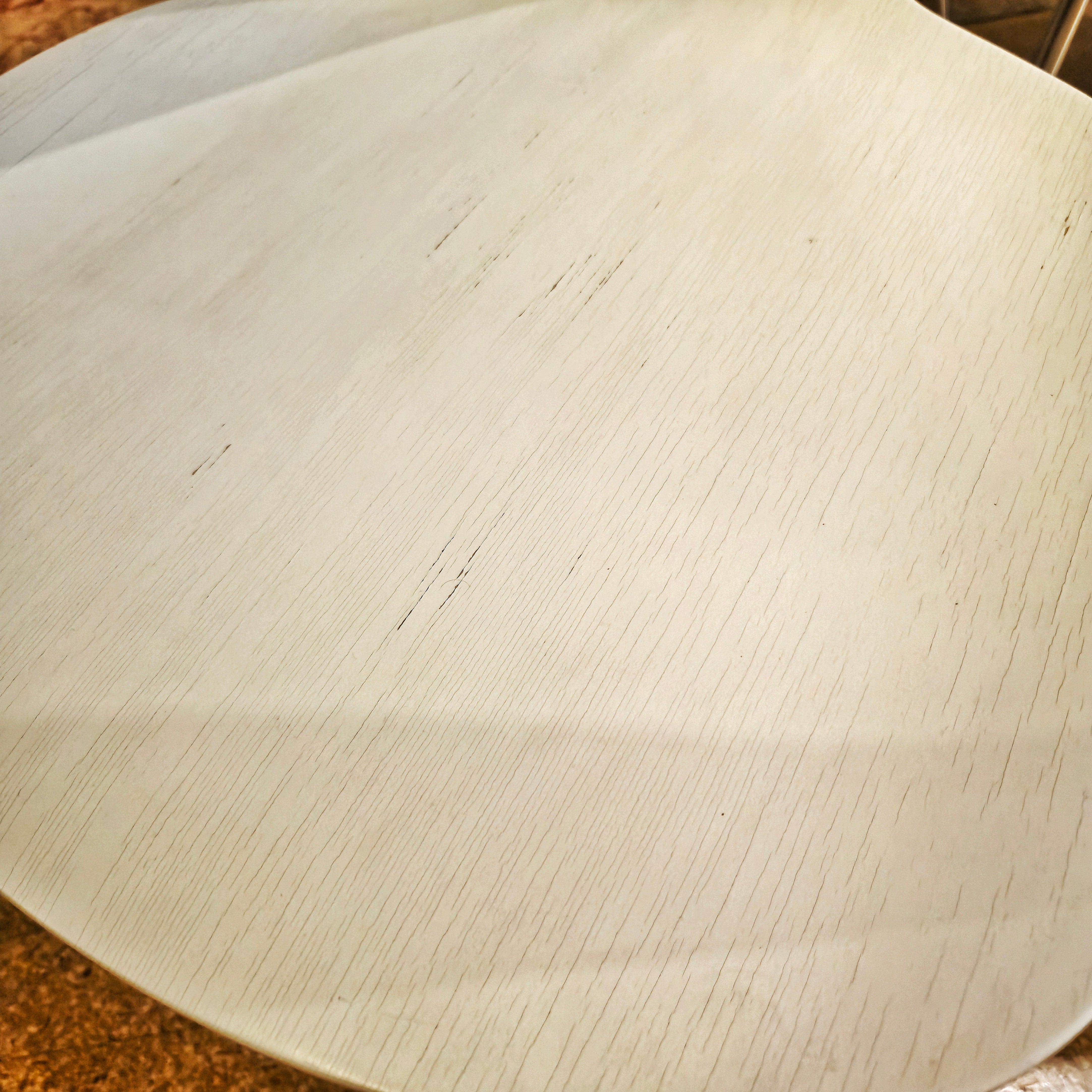
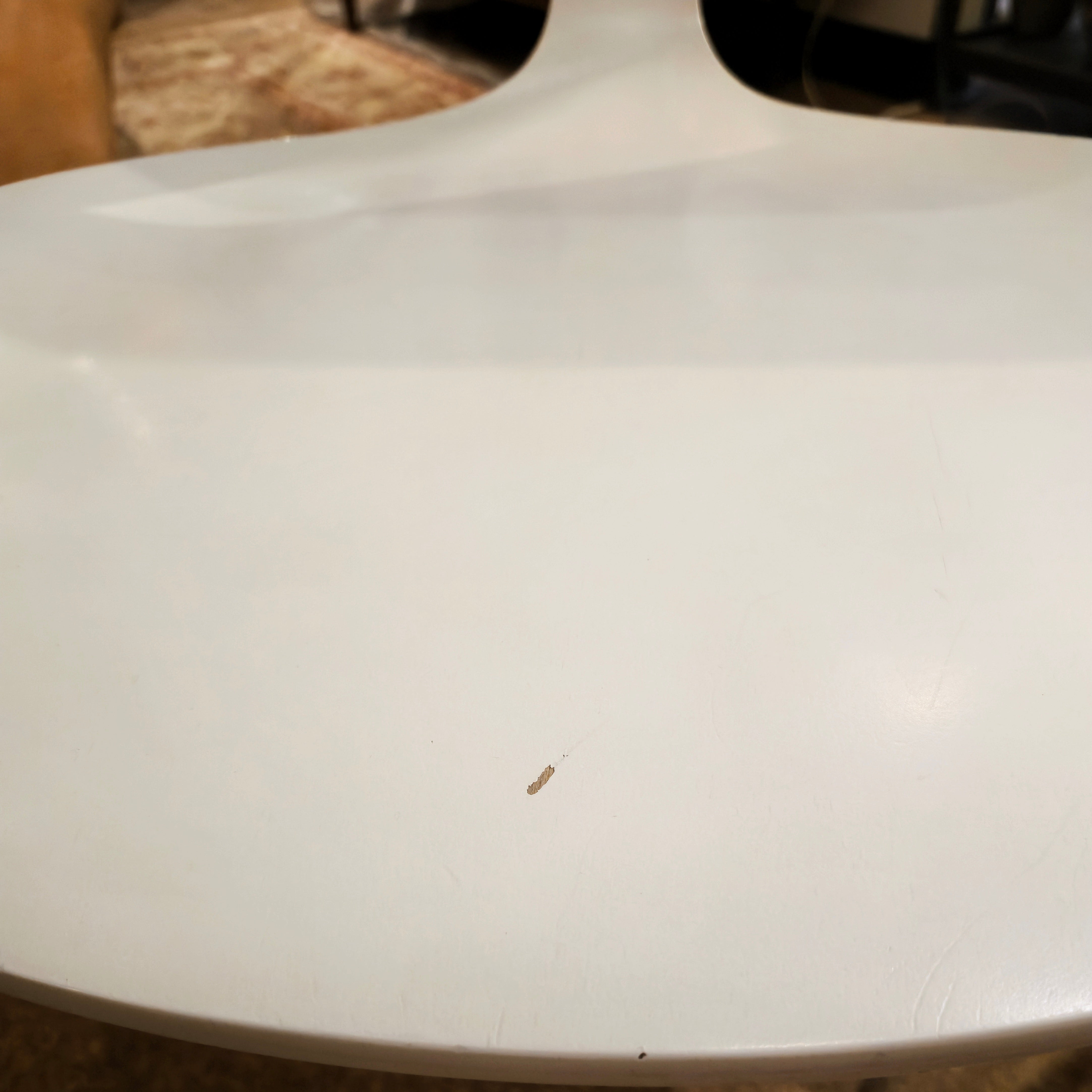
SET OF FOUR WHITE LACQUER STACKING CHAIRS BY NORMAN CHERNER
CONTACT US HERE ABOUT THIS ITEM.
Four, well-worn, white-lacquered side chairs designed in 1958 by Norman Cherner for Plycraft of Lawrence, Mass. These late-model stackables date back to 2003, Cherner’s sons having founded the CHERNER CHAIR COMPANY in 1999 to revive their father's designs. The finish is somewhat worn but intact, with no chipping or flaking. Offered as a set.
NORMAN CHERNER (1920–1987) was an American architect and designer. Although best known for his work in furniture, his career encompassed almost all aspects of design: from graphics, glassware, and lighting to his pioneering work in prefabricated housing. Born in Brooklyn, he studied and taught at the Columbia University Fine Arts Department and served as an instructor at MoMA in New York from 1947 to 1949. Training in the Bauhaus tradition led to a lifelong exploration committed to the integration of creative expression with industrial production. An innovator in plywood and affordable design, he was fascinated with the creation of mass-market pieces that would fit into the small-scale, low-cost dwellings of post-war American life.
Cherner’s designs are part of the iconography of the mid-20th century. Since their introduction nearly fifty years ago, his chairs, tables, and case goods have demonstrated enduring popularity. He is, of course, best known for one particular piece—the eponymous Cherner chair, designed in 1958 for Plycraft, a manufacturing company in Lawrence, Mass. Made from molded plywood, the story of its creation and development is one of innovation, controversy, and betrayal. Fortunately for his fans around the world, the story has a happy ending.
After telling Cherner that his 1958 design had been scrapped, Plycraft’s owner, Paul Goodman, continued to produce it, claiming himself as the designer, under the pseudonym “Bernardo.” Soon after, the chair’s popularity was sealed when it appeared in Norman Rockwell’s (1894–1978) 1961 painting, The Artist at Work, on the cover of The Saturday Evening Post. Cherner sued the company, and Plycraft agreed to pay Cherner royalties; however, the entire seating line was out of production by the early 1970s. (The design is sometimes still referred to as the “Rockwell” chair.)
For almost two decades, Cherner’s seating was rarely seen outside of galleries and museums—and the living rooms of a few lucky collectors. This all changed in 1999, when Cherner’s sons, Benjamin and Thomas, formed the CHERNER CHAIR COMPANY to revive their father’s original designs and produce them according to his specifications. The rekindled success of the chairs inspired Benjamin, an architect and designer in his own right, to create a coordinating table, the Cherner Table, in 2004.
Today, the CHERNER CHAIR COMPANY is the sole licensor of Cherner’s designs. Still produced in the USA, the classic version of the chair is made from walnut-veneered, laminated plywood of graduated thickness and is available in ten different finishes. It is durable enough to last a lifetime and can be passed down through generations. Without arms, the chair is perfect for dining; with it makes an elegant office chair. The design is also available as a bar stool.
CHERNER CHAIR COMPANY was formed in 1999 by brothers Benjamin (b. 1956) and Thomas (b. 1958) Cherner in response to requests from fellow architects to reissue their father’s mid-century furniture designs. They brought back into production many of the most popular pieces, manufacturing them with the same attention to detail found in the original hand-made classics.
CHERNER products are made to last and be cherished, and the company is “committed to a world where less furniture is manufactured.” All product components are replaceable, ensuring that their chairs, tables, and stools can be kept in service indefinitely.
In addition to reviving Norman Cherner’s work, CHERNER has introduced new designs by Benjamin Cherner.
DETAILS
Designer – NORMAN CHERNER
Design Period/Year – 1958
Maker – CHERNER CHAIR COMPANY
Production Period/Year – 2003
Origin – USA
Styles/Movements – MID-CENTURY MODERN
Materials – PLYWOOD, STEEL
Colors – WHITE, SILVER
Condition – Fair vintage condition. Finish is worn but intact—no chips, flakes, cracks, or structural issues.
Dimensions – 19" W × 21" D × 31 ½" H
Seat Height – 18"
Number of Seats – 1

